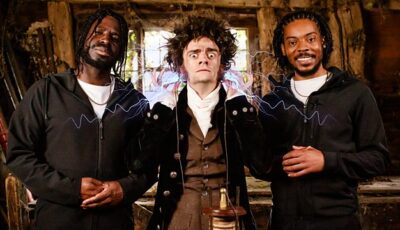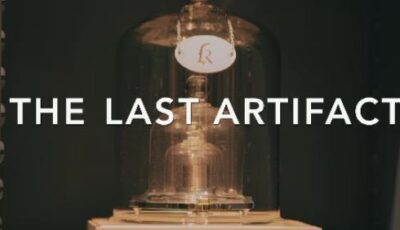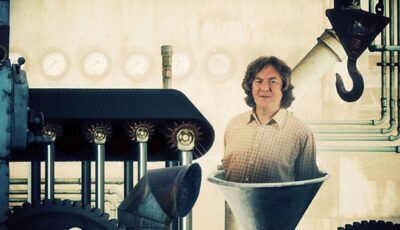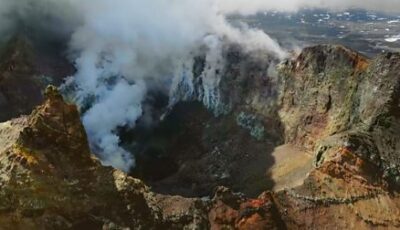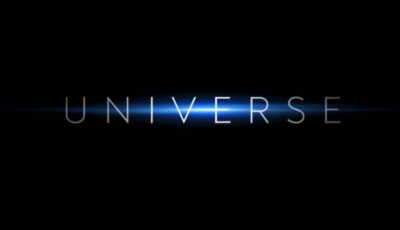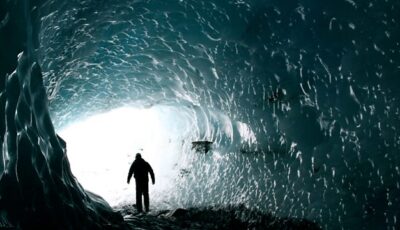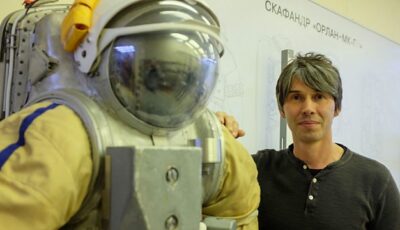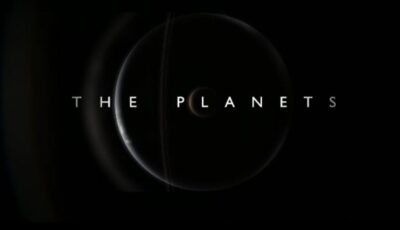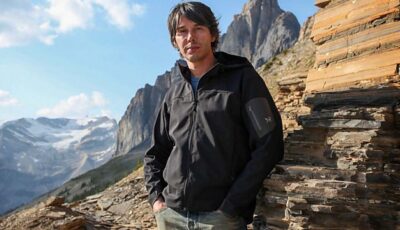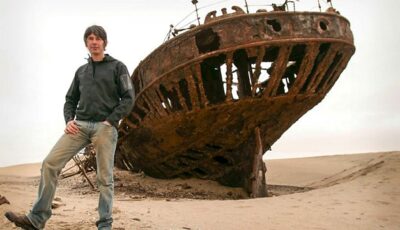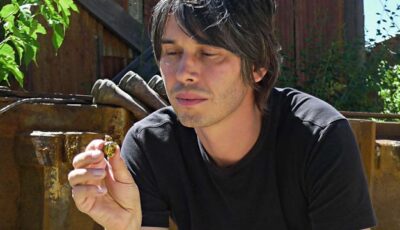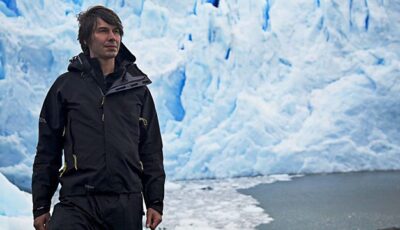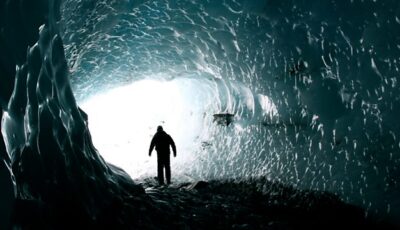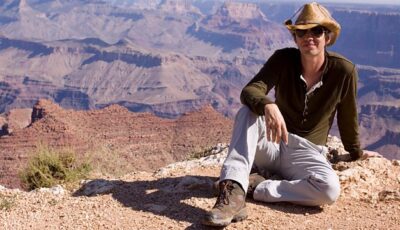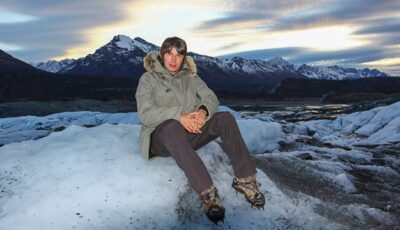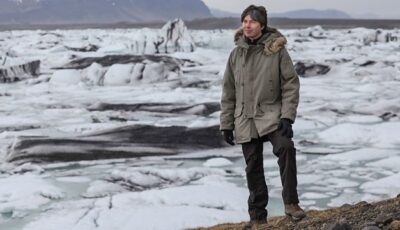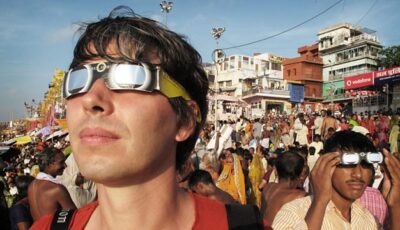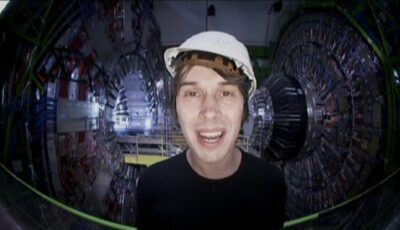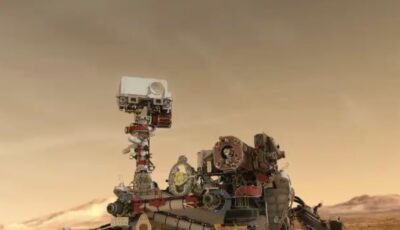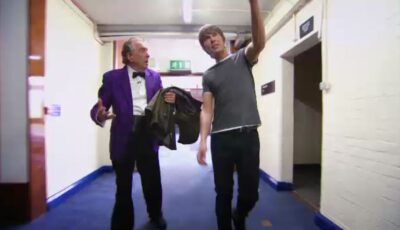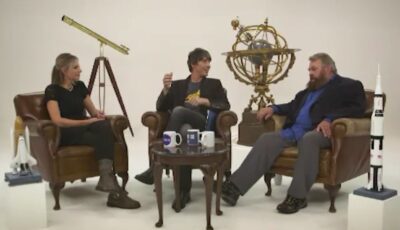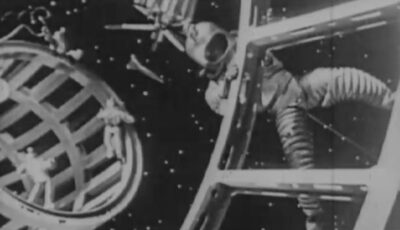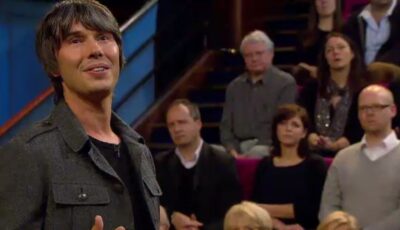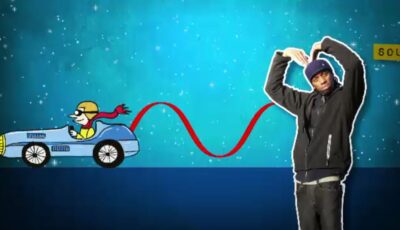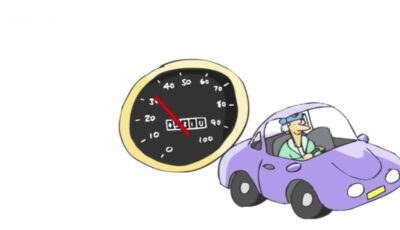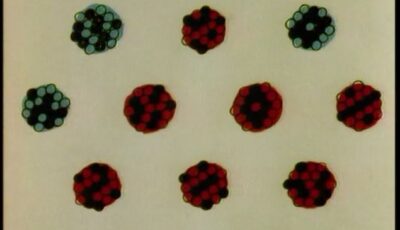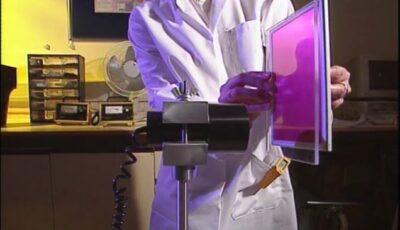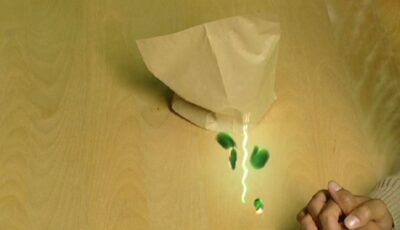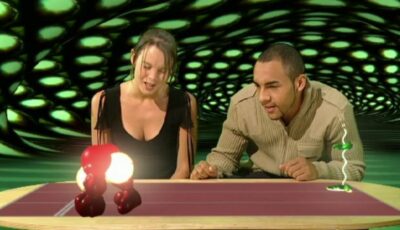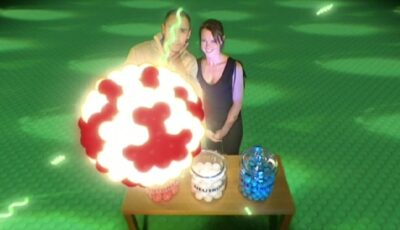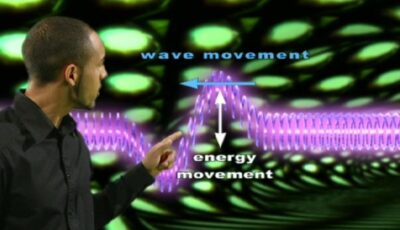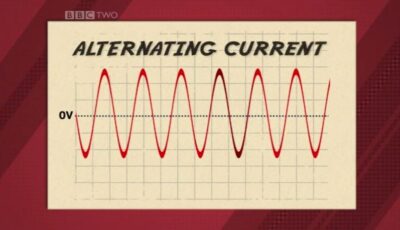Atomic Structure

02: Out of Sight | Richard Hammond's Invisible Worlds
02: Out of Sight | Richard Hammond's Invisible Worlds
Richard Hammond uses groundbreaking imaging technology to take the viewer on a journey of discovery beyond the visible ...

03: Off the Scale | Richard Hammond's Invisible Worlds
03: Off the Scale | Richard Hammond's Invisible Worlds
Richard Hammond explores the miniature universe around us, from microscopic changes to ice crystals that can trigger a...

2: What is the World Made Of? | The Story of Science: Power, Proof and Passion
2: What is the World Made Of? | The Story of Science: Power, Proof and Passion
Michael Mosley explores how history shaped science. Here, he looks at how atomic theories and ...
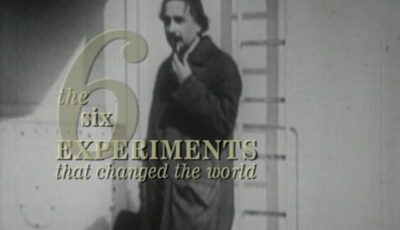
2: Marie Curie's Radium | The Six Experiments That Changed The World
2: Marie Curie's Radium | The Six Experiments That Changed The World
From Galileo to Einstein, from Faraday to Mendel: modern scientists try to recreate the seminal experime...
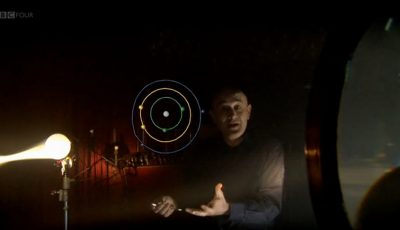
Electricity and the Atomic scale | Shock and Awe: The Story of Electricity
Electricity and the Atomic scale | Shock and Awe: The Story of Electricity
Jim Al-Khalili explores how Ernest Rutherford's work on the atom revealed what electricity was on ...
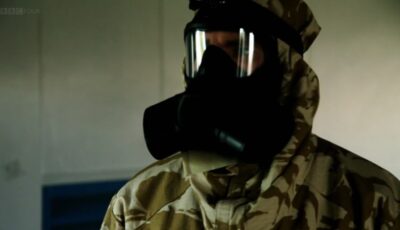
Chemical weapons | Inside Porton Down: Britain's Secret Weapons Research Facility
Chemical weapons | Inside Porton Down: Britain's Secret Weapons Research Facility
Introducing the idea of chemical and biological weapons, leading onto pathogens.
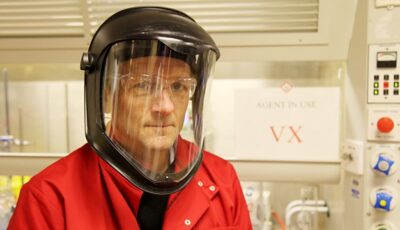
Inside Porton Down: Britain's Secret Weapons Research Facility
Inside Porton Down: Britain's Secret Weapons Research Facility
Michael Mosley investigates Porton Down, Britain's most secretive and controversial military research base. He...
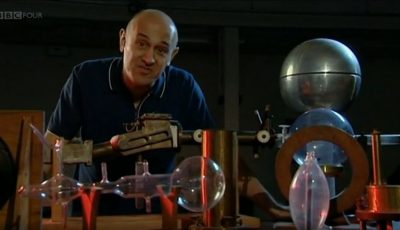
Alpha particles | Chemistry: A Volatile History
Alpha particles | Chemistry: A Volatile History
Rutherford stated the fact that most alpha particles go straight through foil is evidence for the atom being mostly empty spa...
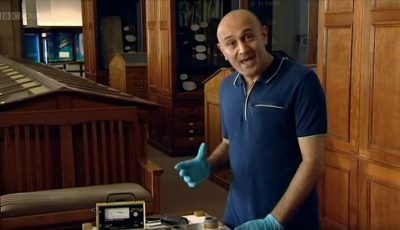
Radium | Chemistry: A Volatile History
Radium | Chemistry: A Volatile History
Radium was discovered in 1898 by Marie and Pierre Curie.
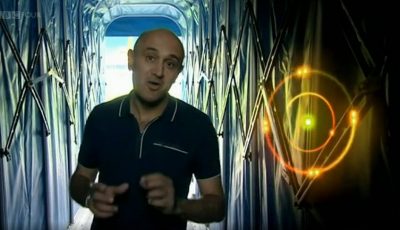
History of the Atom: From Rutherford to Bohr | Chemistry: A Volatile History
History of the Atom: From Rutherford to Bohr | Chemistry: A Volatile History
Spec references J248: C1.2a J250: C1.2a. Professor Jim Al-Khalili explains the history of the at...
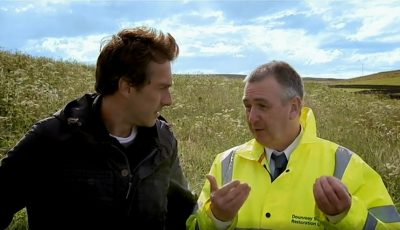
Radioactive particle clean up mission | Bang Goes the Theory
Radioactive particle clean up mission | Bang Goes the Theory
Following a leak of thousands of radioactive particles in the 60's, a team at Dounreay are attempting to find an...
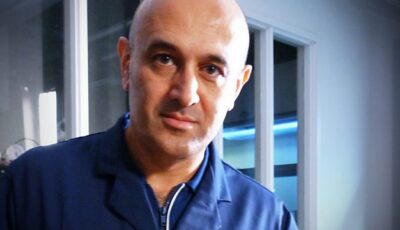
The Key to the Cosmos | Atom
The Key to the Cosmos | Atom
Jim Al-Khalili's documentary series about the building block of our universe, the atom. He shows how the mystery of the universe's creation was ...
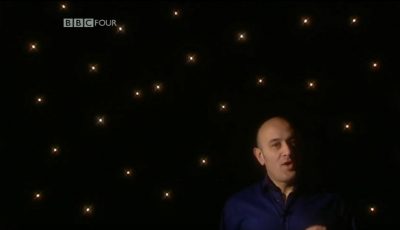
The big bang and the creation of hydrogen and helium | Atom
The big bang and the creation of hydrogen and helium | Atom
George Gamow believed that helium existed in the universe before the sun and the stars were formed.
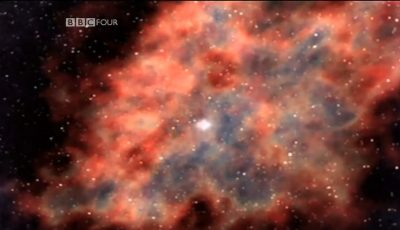
The furnaces in which everything was made | Atom
The furnaces in which everything was made | Atom
Fred Hoyle worked out how the heaviest elements were created through nuclear fusion.
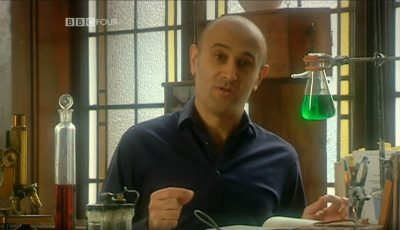
The discovery of nuclear fission | Atom
The discovery of nuclear fission | Atom
Scientists in the 1930's toyed with neutrons colliding with nucleai and were excited at the thought that such experiments could creat...

Nuclear fusion | Atom
Nuclear fusion | Atom
Sunlight is created by nuclear fusion in the Sun when two protons are fused together.
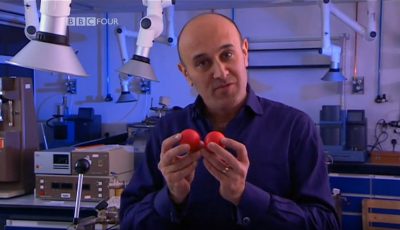
The strong nuclear force | Atom
The strong nuclear force | Atom
Like a magnet, protons will repel each other, however, as soon as they are close enough they will stick together.

Discovery of the Neutron | Atom
Discovery of the Neutron | Atom
Spec references J248: C1.2d, C1.2e J250: C1.2d, C1.2e. Professor Jim Al-Khalili explains how James Chadwick discovered the neutron. This solv...
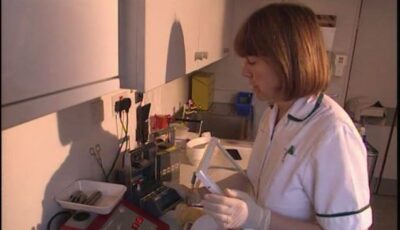
Using radioactive tracers for bone scans (2) | Short Circuit
Using radioactive tracers for bone scans (2) | Short Circuit
Spec references J249: P6.2c, P5.2i. Preparation and administration of a tracer for a bone scan of a rower.
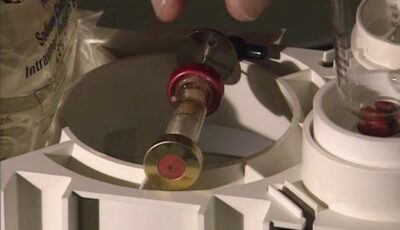
Using radioactive tracers for bone scans (1) | Short Circuit
Using radioactive tracers for bone scans (1) | Short Circuit
Spec references J249: P6.2c, P5.2i. Preparation and administration of a tracer for a bone scan of a rower.
Electricity

3: Revelations and Revolutions | Shock and Awe: The Story of Electricity
3: Revelations and Revolutions | Shock and Awe: The Story of Electricity
Jim Al-Khalili concludes by looking at how, if we could understand the secret of electrical supercon...

2: The Age of Invention | Shock and Awe: The Story of Electricity
2: The Age of Invention | Shock and Awe: The Story of Electricity
Jim Al-Khalili shows how harnessing the link between magnetism and electricity transformed the world, allow...

1: Spark | Shock and Awe: The Story of Electricity
1: Spark | Shock and Awe: The Story of Electricity
Jim Al-Khalili tells how the first 'natural philosophers' began to unlock electricity's mysteries, studying its curious li...
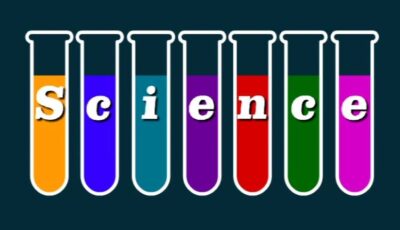
Mains electricity 2 | GCSE Bitesize Revision
Mains electricity 2 | GCSE Bitesize Revision
Animated shorts to support students preparing for assessments in GCSE Additional Science.
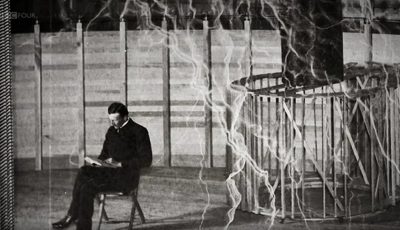
How Nikola Tesla electrified his Victorian peers | Victorian Sensations
How Nikola Tesla electrified his Victorian peers | Victorian Sensations
Hannah Fry describes the first moment Nikola Tesla demonstrated the power of electricity.
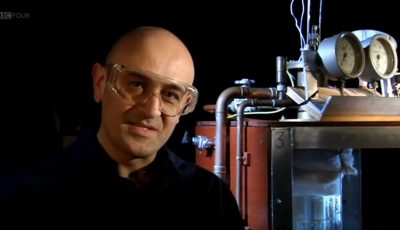
Superconductors | Shock and Awe: The Story of Electricity
Superconductors | Shock and Awe: The Story of Electricity
Jim Al-Khalili looks at how, in 1986, IBM researchers discovered a breakthrough regarding superconductivity in cera...
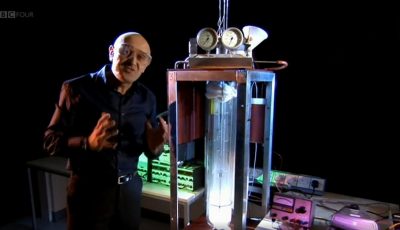
Resistance | Shock and Awe: The Story of Electricity
Resistance | Shock and Awe: The Story of Electricity
Jim Al-Khalili explains how, as we made microchips smaller, the electrical feature of resistance was becoming more probl...
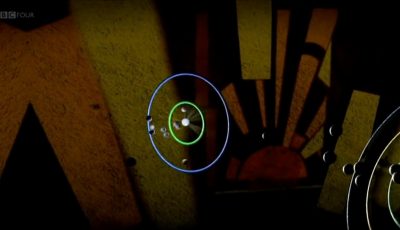
Crystal Junctions | Shock and Awe: The Story of Electricity
Crystal Junctions | Shock and Awe: The Story of Electricity
Jim Al-Khalili explores the race between scientists to create a reliable way to amplify electrical signals, and i...
Semiconductors and WWII | Shock and Awe: The Story of Electricity
Semiconductors and WWII | Shock and Awe: The Story of Electricity
Jim Al-Khalili explains the importance of semiconductors, particularly with regard to fighting WWII.

Electricity and the Atomic scale | Shock and Awe: The Story of Electricity
Electricity and the Atomic scale | Shock and Awe: The Story of Electricity
Jim Al-Khalili explores how Ernest Rutherford's work on the atom revealed what electricity was on ...
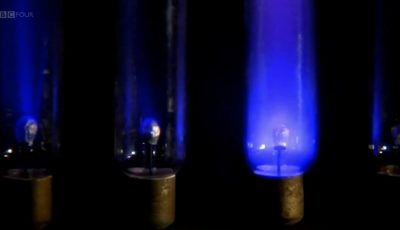
Valves | Shock and Awe: The Story of Electricity
Valves | Shock and Awe: The Story of Electricity
Jim Al-Khalili explains how William Crooks experimented with sending electrical currents through a vacuum.
Semiconductors | Shock and Awe: The Story of Electricity
Semiconductors | Shock and Awe: The Story of Electricity
Jim Al-Khalili explores how JC Bose and his wave detector made use of crystals to conduct electricity.

Electromagnetic waves | Shock and Awe: The Story of Electricity
Electromagnetic waves | Shock and Awe: The Story of Electricity
Jim Al-Khalili explains Michael Faraday's theory that any electrical charge can create a forcefield surroundi...
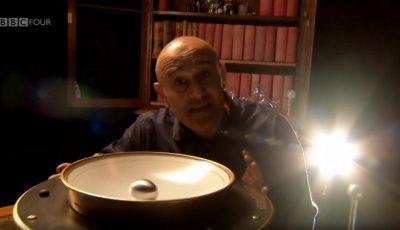
Alternating current | Shock and Awe: The Story of Electricity
Alternating current | Shock and Awe: The Story of Electricity
Nikola Tesla invented alternating current (AC) which allowed no electrical power to be lost when passing throug...
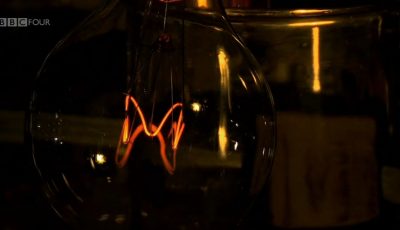
The first light bulbs | Shock and Awe: The Story of Electricity
The first light bulbs | Shock and Awe: The Story of Electricity
Jim Al-Khalili explores the history of Thomas Edison's first incandescent light bulb.
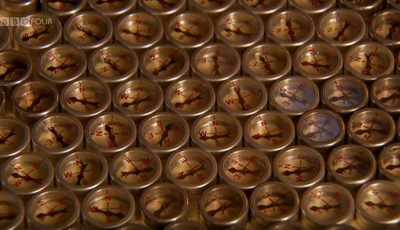
Electromagnets and telegraphs | Shock and Awe: The Story of Electricity
Electromagnets and telegraphs | Shock and Awe: The Story of Electricity
Jim Al-Khalili explains how an electromagnet works and how it paved the way for the birth of the tele...
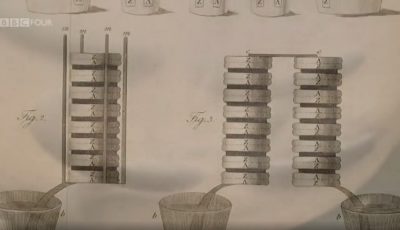
What is electricity | Shock and Awe: The Story of Electricity
What is electricity | Shock and Awe: The Story of Electricity
An electric current is essentially the flow of electrons (which are electrically charged) from one atom to anot...
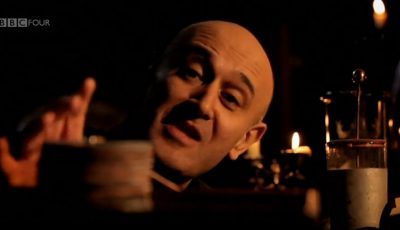
Voltaic Pile | Shock and Awe: The Story of Electricity
Voltaic Pile | Shock and Awe: The Story of Electricity
Invented by Italian chemist Alessandro Volta in 1799, the voltaic pile was the first electrical battery that could con...
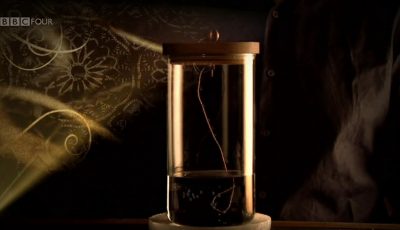
Positive and negative charges | Shock and Awe: The Story of Electricity
Positive and negative charges | Shock and Awe: The Story of Electricity
Benjamin Franklin discovered that electricity could be like money in a bank, it could be in credit (p...
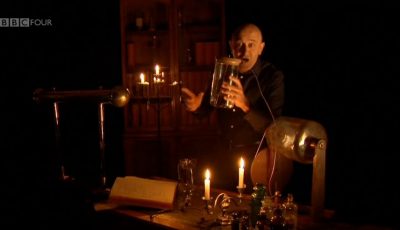
Leyden Jar | Shock and Awe: The Story of Electricity
Leyden Jar | Shock and Awe: The Story of Electricity
A Leyden jar is a device for storing static electricity, discovered accidentally in Leiden, Netherlands.
Energy

01: Speed Limits | Richard Hammond's Invisible Worlds
01: Speed Limits | Richard Hammond's Invisible Worlds
Using state-of-the-art technologies, Richard Hammond goes beyond the limits of the naked eye and explores the hidden se...

4: Can We Have Unlimited Power? | The Story of Science: Power, Proof and Passion
4: Can We Have Unlimited Power? | The Story of Science: Power, Proof and Passion
Michael Mosley shows how the most power-hungry generation that has ever lived has harnessed ...

Fukushima: Is Nuclear Power Safe? | Horizon
Fukushima: Is Nuclear Power Safe? | Horizon
Six months after the explosions at the Fukushima nuclear plant in Japan, Professor Jim Al-Khalili sets out to discover whether nu...
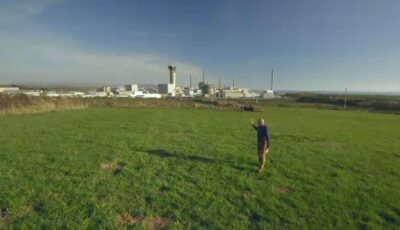
Britain's Nuclear Secrets: Inside Sellafield
Britain's Nuclear Secrets: Inside Sellafield
Jim Al-Khalili uncovers the story of Sellafield. He encounters some of the most dangerous substances on earth, reveals the natur...
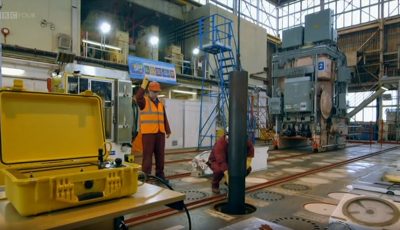
Prof Jim Al Khalili goes inside Calder Hall for his first look inside the core of a nuclear reactor | Britain's Nuclear Secrets: Inside Sellafield
Prof Jim Al Khalili goes inside Calder Hall for his first look inside the core of a nuclear reactor | Britain's Nuclear Secrets: Inside Sellafield
Nuclear physicist Professo...
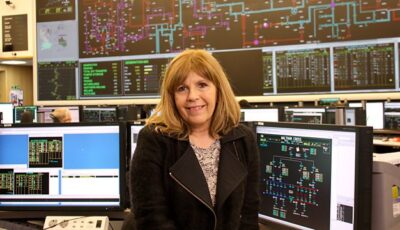
Energy | Bang Goes The Theory
Energy | Bang Goes The Theory
Jem Stansfield, Liz Bonnin and Maggie Philbin investigate how close Britain might get to running out of electricity.
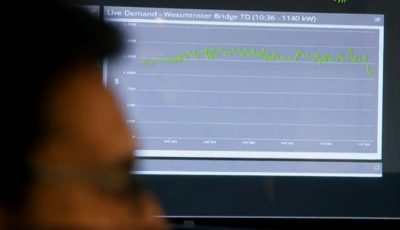
Reducing demand on the grid | Bang Goes the Theory
Reducing demand on the grid | Bang Goes the Theory
A company that aims to reduce the demand on the grid at key moments in the day,
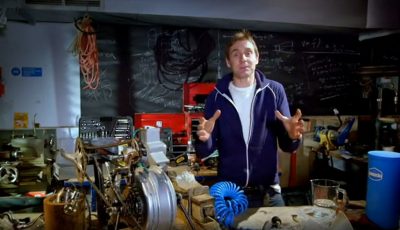
Liquid Air Energy Storage | Bang Goes the Theory
Liquid Air Energy Storage | Bang Goes the Theory
A demonstration of how liquid air energy storage would function.
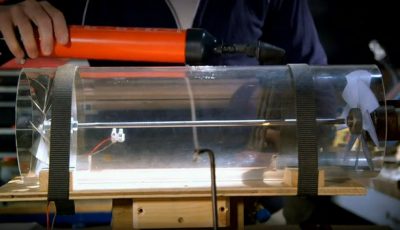
Gas turbine technology | Bang Goes the Theory
Gas turbine technology | Bang Goes the Theory
A demonstration of how gas turbine technology works.
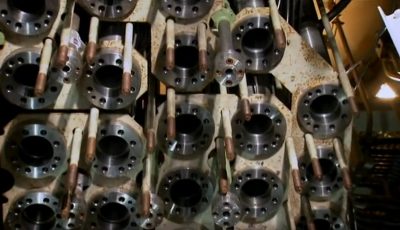
Inside a nuclear reactor | Bang Goes the Theory
Inside a nuclear reactor | Bang Goes the Theory
Jem climbs inside a nuclear reactor and explains how nuclear power is produced.

S2E1 | Bang Goes The Theory
S2E1 | Bang Goes The Theory
Jem tries to smash a land speed record with a fire extinguisher, a go kart and a well-oiled spanner.
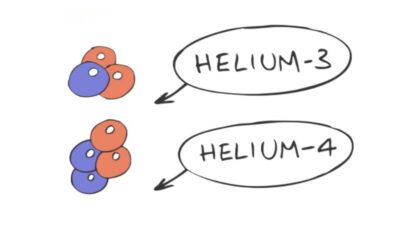
Nuclear fusion | Additional Science 2
Nuclear fusion | Additional Science 2
Spec references J249: P6.2. Description and animation of nuclear fusion.
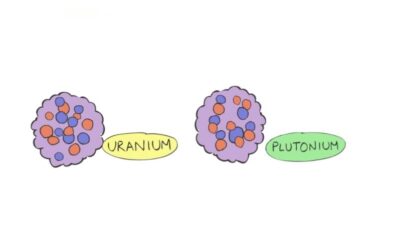
Nuclear fission | Additional Science 2
Nuclear fission | Additional Science 2
Spec references J249: P6.2. Description and animation of nuclear fission.
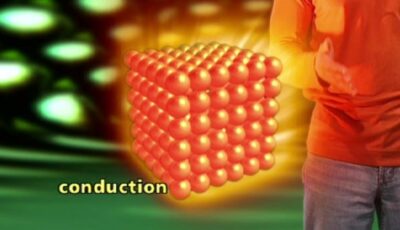
Conduction, convection and radiation and insulation. | Curriculum Bites
Conduction, convection and radiation and insulation. | Curriculum Bites
Spec references J249: P5.2a, P5.2f J250: P5.2a, P5.2f. Conduction, convection and radiation, and ho...
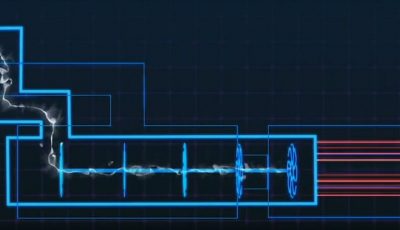
Heysham nuclear power station | The One Show
Heysham nuclear power station | The One Show
A look inside Heysham nuclear power station, with an explanation of how nuclear power works.
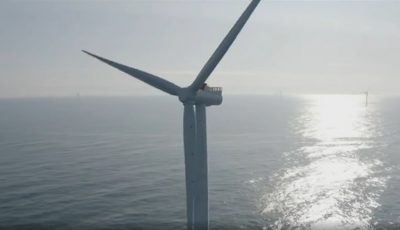
Inside a wind turbine | Powering Britain
Inside a wind turbine | Powering Britain
What a wind turbine looks like inside.
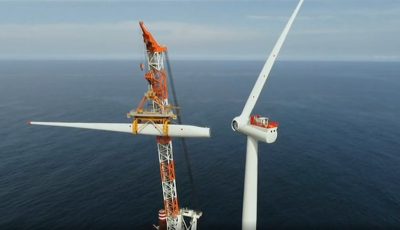
Turbine | Powering Britain
Turbine | Powering Britain
How does a wind turbine produce energy?

Energy transportation | Powering Britain
Energy transportation | Powering Britain
How energy made by the wind turbines is transported to our homes.
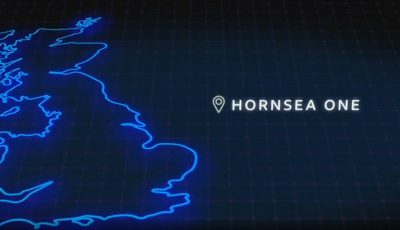
Hornsea One | Powering Britain
Hornsea One | Powering Britain
An introduction to the offshore windfarm Hornsea One.

Drax power station | Powering Britain
Drax power station | Powering Britain
The history of Drax power station and an introduction to its use of biomass.
Forces

01: Speed Limits | Richard Hammond's Invisible Worlds
01: Speed Limits | Richard Hammond's Invisible Worlds
Using state-of-the-art technologies, Richard Hammond goes beyond the limits of the naked eye and explores the hidden se...

15: Forces and Motion Special | Horrible Science
15: Forces and Motion Special | Horrible Science
A weird and wonderful look at how gravity, magnetism and friction impact everything. With Fred Sirieix.

S2E4:...about Speed | James May's Things You Need to Know
S2E4:...about Speed | James May's Things You Need to Know
James May explains all you need to know about speed with a fast-moving mix of animation and motion graphics, includ...

3: What Is Gravity? | Brian Cox's Adventures in Space and Time
3: What Is Gravity? | Brian Cox's Adventures in Space and Time
Brian takes a fresh look at the concept of gravity, revealing it to be far more than just the force that makes...
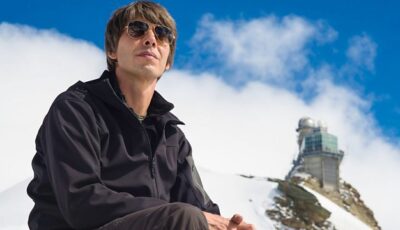
4: The Pale Blue Dot | Forces of Nature with Brian Cox
4: The Pale Blue Dot | Forces of Nature with Brian Cox
Professor Brian Cox reveals how Earth's beauty is created by just a handful of forces. In this episode Brian explains ...

1: The Universe in a Snowflake | Forces of Nature with Brian Cox
1: The Universe in a Snowflake | Forces of Nature with Brian Cox
In this episode Brian looks at the stunning diversity of shapes.

3: Wind | How Earth Made Us
3: Wind | How Earth Made Us
Professor Iain Stewart sets sail on one of the fastest racing boats ever built to explore the story of our turbulent relationship with the wind.
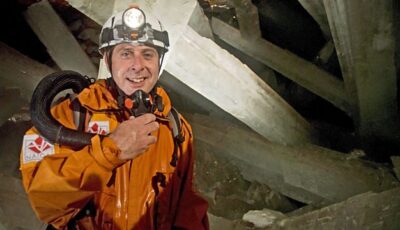
1: Deep Earth | How Earth Made Us
1: Deep Earth | How Earth Made Us
Series telling the story of how the development of civilisation was influenced by planetary forces. Professor Iain Stewart explores the rol...
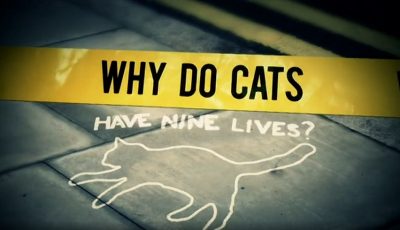
Why Do Cats Have Nine Lives? | James May's Things You Need to Know
Why Do Cats Have Nine Lives? | James May's Things You Need to Know
James May explains about speed, using a fast-moving mix of animation and graphics. Here he explores why te...
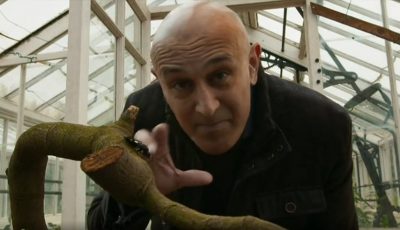
Einstein and the beetle | Gravity and Me: The Force that Shapes our Lives
Einstein and the beetle | Gravity and Me: The Force that Shapes our Lives
Professor Jim Al-Khalili explains Einstein's analogy of gravity that he told his son to explain his...

Momentum | Additional Science 1
Momentum | Additional Science 1
Spec references J249: P2.2k J250: P2.2k. Animation, description and worked example, p = m v. Description of force = rate of change of momentu...
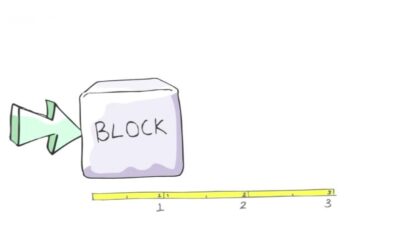
Work done | Additional Science 1
Work done | Additional Science 1
Spec references J249: P2.2m, P7.1c, P7.1d J250: P2.2l, P5.1c, P5.1d. Animation, description and worked example. Work done = force × distance.
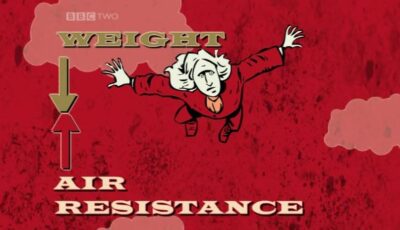
Forces when falling and terminal velocity | Additional Science 2
Forces when falling and terminal velocity | Additional Science 2
Spec references J249: P2.2f, P2.2h J250: P2.2f, P2.2h. Falling, air resistance, balanced forces and terminal...
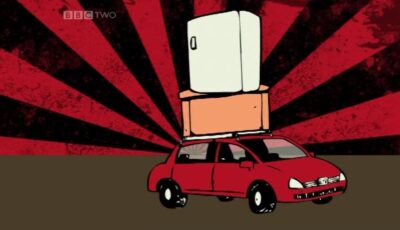
Forces and moving objects | Additional Science 2
Forces and moving objects | Additional Science 2
Spec references J249: P2.2a, P2.2b, P2.3h J250: P2.2a, P2.2b, P2.3h. Clear description and explanation of types of force aff...

Force, mass and acceleration | Additional Science 2
Force, mass and acceleration | Additional Science 2
Spec references J249: P2.2i, P2.2l J250: P2.2i. Effect of force and mass on acceleration. F = m a. Worked example. Animat...

Force arrows and balanced forces | Additional Science 2
Force arrows and balanced forces | Additional Science 2
Spec references J249: P2.2c, P2.2d, P2.2f J250: P2.2c, P2.2d, P2.2f. Force arrows and balanced forces - animation and...

Forces on a sky diver and terminal velocity | Curriculum Bites
Forces on a sky diver and terminal velocity | Curriculum Bites
Spec references J249: P2.2f J250: P2.2f. Speed time graph for a parachutist and terminal velocity (no parachu...

Unbalanced forces | Curriculum Bites
Unbalanced forces | Curriculum Bites
Spec references J249: P2.2d J250: P2.2d. Unbalanced forces cause acceleration.
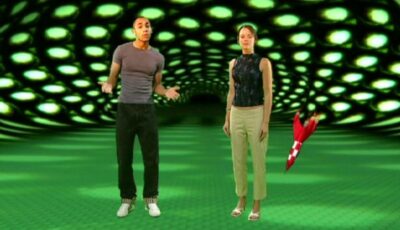
Balanced and unbalanced forces | Curriculum Bites
Balanced and unbalanced forces | Curriculum Bites
Spec references J249: P2.2b J250: P2.2b. Addresses misconception that objects with a force acting on them must move. Refram...

Acceleration | Additional Science 1
Acceleration | Additional Science 1
Spec references J249: P2.1h J250: P2.1h. Calculating acceleration and what the units mean - description and animation.
Magnetism and Electromagnetism

4: Faraday's Doughnut | The Six Experiments That Changed The World
4: Faraday's Doughnut | The Six Experiments That Changed The World
From Galileo to Einstein, from Faraday to Mendel: modern scientists try to recreate the seminal experiment...
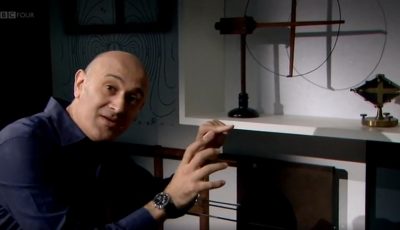
The race to prove Maxwell's theory | Shock and Awe: The Story of Electricity
The race to prove Maxwell's theory | Shock and Awe: The Story of Electricity
Jim Al-Khalili explains how physics professor Oliver Lodge proved Maxwell's theory that electrom...

Electricity, Magnetism, Motion | Shock and Awe: The Story of Electricity
Electricity, Magnetism, Motion | Shock and Awe: The Story of Electricity
Hans Christian Ørsted discovered that an electric current creates a magnetic field.
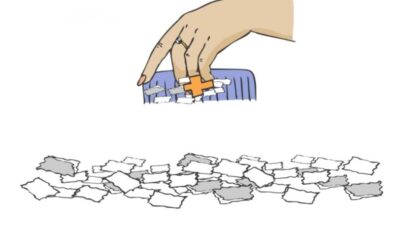
Attraction and repulsion | Additional Science 2
Attraction and repulsion | Additional Science 2
Spec references J249: P3.1b J250: P3.1b. Attraction and repulsion between objects ( charging by induction not addressed) - an...

Why do some materials become charged? | Additional Science 2
Why do some materials become charged? | Additional Science 2
Spec references J249: P3.1a, P3.1b J250: P3.1a, P3.1b. Why insulating materials can be charged but conducting ma...

Electromagnetism | Short Circuit
Electromagnetism | Short Circuit
Bringing chemistry, physics and biology to life using real-life examples, 3D graphics and practical experiments.
Particle Model of Matter

03: Off the Scale | Richard Hammond's Invisible Worlds
03: Off the Scale | Richard Hammond's Invisible Worlds
Richard Hammond explores the miniature universe around us, from microscopic changes to ice crystals that can trigger a...

The Clash of the Titans | Atom
The Clash of the Titans | Atom
Nuclear physicist Jim Al-Khalili tells the story of the discovery that everything is made of atoms, and of the minds behind the scientific bre...
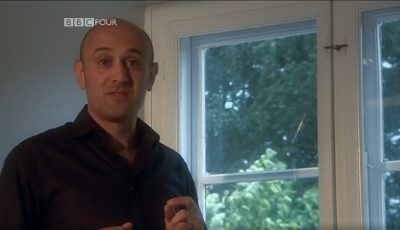
Heisenberg's Uncertainty Principle | Atom
Heisenberg's Uncertainty Principle | Atom
Jim Al-Khalili explains Heisenberg's famous Uncertainty Principle that explains why an atom can't be visualised.

The quantum jump | Atom
The quantum jump | Atom
Jim Al-Khalili attempts to explain one of the most difficult scientific concepts, but one that underpins everything.
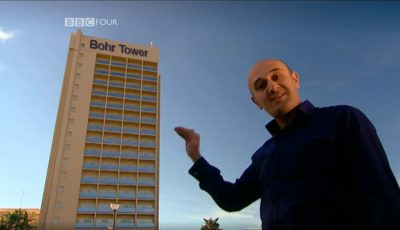
Introduction to Electronic Structure and Chemical Properties | Atom
Introduction to Electronic Structure and Chemical Properties | Atom
Spec references J248: C2.2h J250: C2.2h. Professor Jim Al-Khalili explains how chemical properties are de...
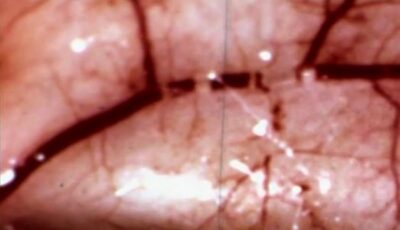
What is the bends? | Short Circuit
What is the bends? | Short Circuit
. How bubbles in the blood cause the bends.

Height and pressure | Short Circuit
Height and pressure | Short Circuit
Effect of height above the surface of the Earth on pressure - diving patient on a helicopter flight.
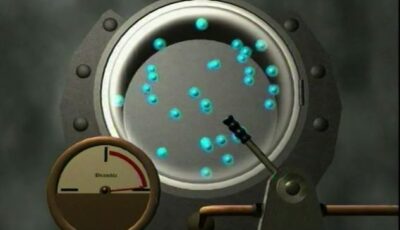
The decompression chamber | Short Circuit
The decompression chamber | Short Circuit
Spec references J249: P1.3c, P1.3d, P1.3f. How a decompression chamber works - animation and analogy with diving context .
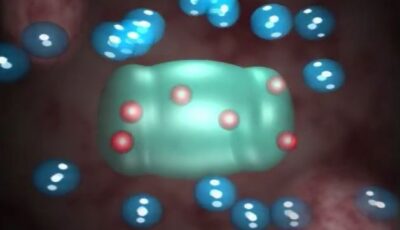
The effect of pressure on gases | Short Circuit
The effect of pressure on gases | Short Circuit
Spec references J249: P1.3c, P1.3d, P1.3f. The effect of pressure on bubble size - animation.
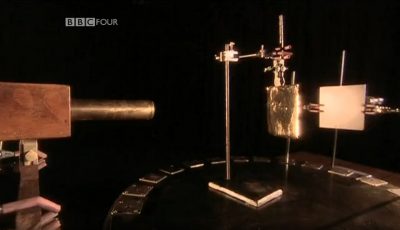
How Rutherford Discovered the Nucleus | Atom
How Rutherford Discovered the Nucleus | Atom
Spec references J248: C1.2a J250: C1.2a. Detailed desciption of how Rutherford's alpha particle scattering experiment was develo...
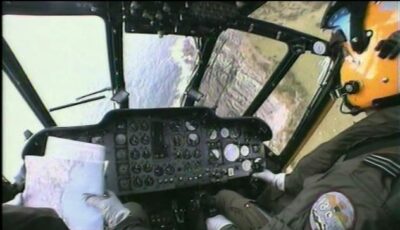
Atmospheric pressure | Short Circuit
Atmospheric pressure | Short Circuit
. Atmospheric pressure is related to the weight of the air above you.

Dissolved gases under pressure | Short Circuit
Dissolved gases under pressure | Short Circuit
. Spec references: J249: P1.3c, P1.3d, P1.3f Analogy between dissolved gases in the blood and fizzy drinks.
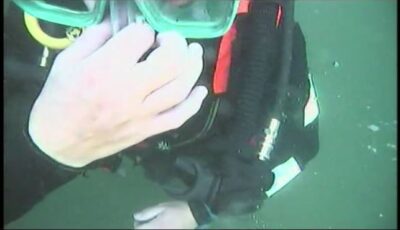
Pressure and water depth | Short Circuit
Pressure and water depth | Short Circuit
Spec references J249: P1.3c, P1.3d, P1.3f. Effect of water depth on an enclosed volume of air - scuba diver.

Physical Processes 3: Temperature and Heat | Scientific Eye
Physical Processes 3: Temperature and Heat | Scientific Eye
The show delves into the nature of heat as a form of energy transfer,

Pressure | Short Circuit
Pressure | Short Circuit
Bringing chemistry, physics and biology to life using real-life examples, 3D graphics and practical experiments.
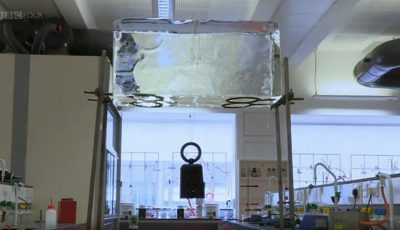
Pressure on ice | The Secret Life of Ice
Pressure on ice | The Secret Life of Ice
Dr Gabrielle Walker and Dr Andrea Sella investigate what happens when pressure is applied to ice and how this allows us to ice skate.
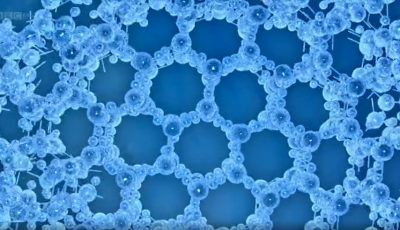
Ice crystal properties | The Secret Life of Ice
Ice crystal properties | The Secret Life of Ice
Dr Gabrielle Walker and Dr Andrea Sella investigate the properties of ice crystals, to explain why ice floats.
Space Physics

Episode 1 | Astronauts: Do You Have What It Takes?
Episode 1 | Astronauts: Do You Have What It Takes?
Chris Hadfield, Dr Kevin Fong and Dr Iya Whiteley put 12 candidates through a series of physical and psychological tests t...

Episode 3 | Astronauts: Do You Have What It Takes?
Episode 3 | Astronauts: Do You Have What It Takes?
Old fears surface when the remaining candidates face some space agency swim tests. Their teamwork and mental agility are s...

Episode 6 | Astronauts: Do You Have What It Takes?
Episode 6 | Astronauts: Do You Have What It Takes?
The finalists head to the Shuttle Landing Facility on Florida's Space Coast for a tough test in weightlessness, and back i...

Episode 5 | Astronauts: Do You Have What It Takes?
Episode 5 | Astronauts: Do You Have What It Takes?
The astronaut candidates fight for their place in the final. Their leadership skills are assessed in a survival test and t...

Episode 4 | Astronauts: Do You Have What It Takes?
Episode 4 | Astronauts: Do You Have What It Takes?
The competition becomes more intense as the remaining candidates are deprived of oxygen to see if they can recognise the s...

Episode 2 | Astronauts: Do You Have What It Takes?
Episode 2 | Astronauts: Do You Have What It Takes?
The remaining astronaut candidates are put through more demanding tests. They have to escape from an underwater capsule an...

02: Out of Sight | Richard Hammond's Invisible Worlds
02: Out of Sight | Richard Hammond's Invisible Worlds
Richard Hammond uses groundbreaking imaging technology to take the viewer on a journey of discovery beyond the visible ...
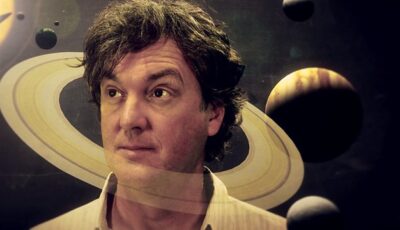
S1E2:...about the Universe | James May's Things You Need to Know
S1E2:...about the Universe | James May's Things You Need to Know
James May takes a journey of discovery across the universe, asking where it all began, how stars work, and w...
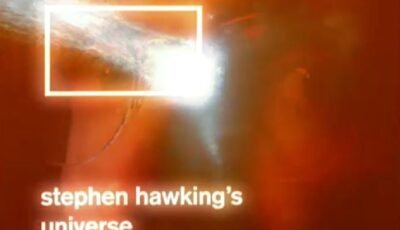
6: An Answer to Everything | Stephen Hawking's Universe
6: An Answer to Everything | Stephen Hawking's Universe
Professor Stephen Hawking explains how scientists are trying to unite the theory of relativity and quantum mechanics ...

5: On the Dark Side | Stephen Hawking's Universe
5: On the Dark Side | Stephen Hawking's Universe
Professor Stephen Hawking shows how we discovered that most of the matter in the Universe is missing and looks at the possib...

4: Black Holes and Beyond | Stephen Hawking's Universe
4: Black Holes and Beyond | Stephen Hawking's Universe
Professor Stephen Hawking looks at how radio astronomy and the discovery of quasars affected the debate about the exis...

3: Cosmic Alchemy | Stephen Hawking's Universe
3: Cosmic Alchemy | Stephen Hawking's Universe
Professor Stephen Hawking looks at the search from ancient to modern times for the 'cosmic alchemy' that created all the matte...

2: In the Beginning | Stephen Hawking's Universe
2: In the Beginning | Stephen Hawking's Universe
Professor Stephen Hawking looks at the mystery of how the Universe. He introduces the Big Bang theory and the scientists who...

1: Seeing is Believing | Stephen Hawking's Universe
1: Seeing is Believing | Stephen Hawking's Universe
Professor Stephen Hawking explains the history of mankind's quest to explain the Universe. He shows how advances in techn...
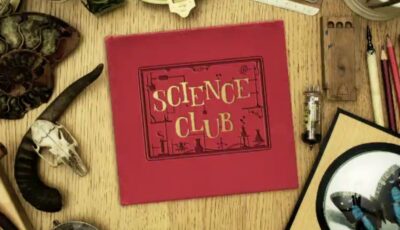
S1E4: Space | Dara O'Briain's Science Club
S1E4: Space | Dara O'Briain's Science Club
Comedian Josh Widdecombe joins Dara and the team of experts to take a peek into mankind's final frontier - space.
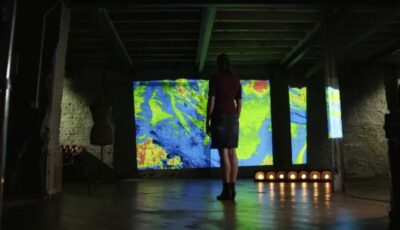
4: Aurora | Dangerous Earth
4: Aurora | Dangerous Earth
Dr Helen Czerski looks at the latest scientific insight into the aurora - dancing lights in the night sky that have fascinated cultures throughou...
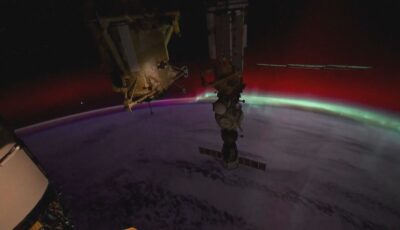
The Northern Lights | From Above
The Northern Lights | From Above
Seen from the International Space Station - a spectacular display of aurora borealis.
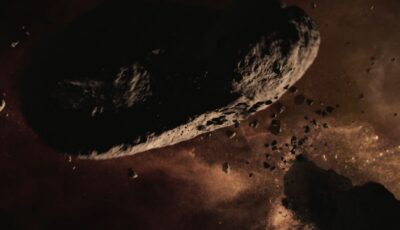
5: Strange Worlds | Solar System
5: Strange Worlds | Solar System
Professor Brian Cox explores the solar system's misfits and oddballs and investigates the forces that sculpted the bizarre features on these...

4: Ice Worlds | Solar System
4: Ice Worlds | Solar System
Professor Brian Cox explores the solar system's ice giants, frozen moons and worlds where ice behaves in unimaginable ways.
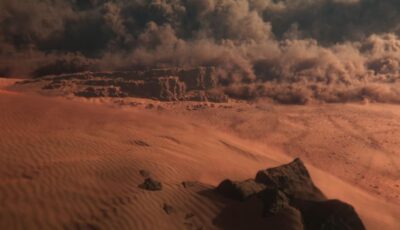
3: Storm Worlds | Solar System
3: Storm Worlds | Solar System
Professor Brian Cox explores the solar system's wildest weather, encountering powerful lightning, strange metallic frosts and monsoon rains on...
Waves

02: Out of Sight | Richard Hammond's Invisible Worlds
02: Out of Sight | Richard Hammond's Invisible Worlds
Richard Hammond uses groundbreaking imaging technology to take the viewer on a journey of discovery beyond the visible ...

03: Off the Scale | Richard Hammond's Invisible Worlds
03: Off the Scale | Richard Hammond's Invisible Worlds
Richard Hammond explores the miniature universe around us, from microscopic changes to ice crystals that can trigger a...

01: Speed Limits | Richard Hammond's Invisible Worlds
01: Speed Limits | Richard Hammond's Invisible Worlds
Using state-of-the-art technologies, Richard Hammond goes beyond the limits of the naked eye and explores the hidden se...
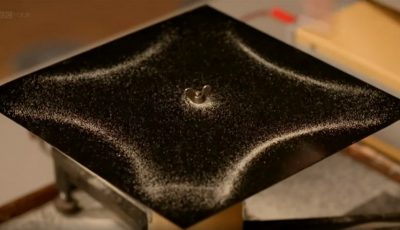
Chladni experiment | Sound Waves: The Symphony of Physics
Chladni experiment | Sound Waves: The Symphony of Physics
Dr Helen Czerski investigates the science behind the sounds and how Chladni used sand to see the shape of sound vib...
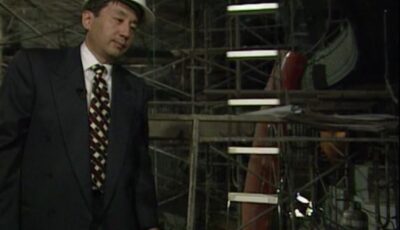
Using an understanding of seismic waves to reduce damage to structures | Short Circuit
Using an understanding of seismic waves to reduce damage to structures | Short Circuit
Spec references J249: P8.3i. Reducing the damage caused to structures during earthquakes.
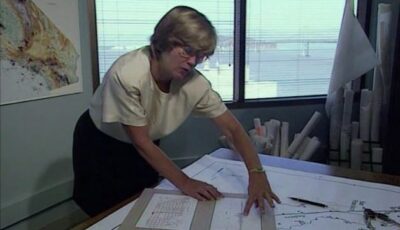
Using seismic waves to locate the source of an earthquake | Short Circuit
Using seismic waves to locate the source of an earthquake | Short Circuit
Spec references J249: P8.3i. Finding the location of an earthquake.
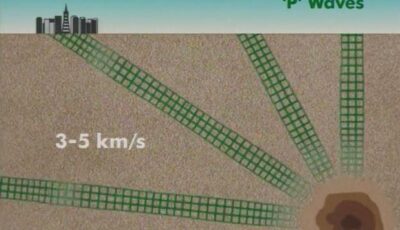
Seismic waves (2) | Short Circuit
Seismic waves (2) | Short Circuit
Spec references J249: P8.3i, P5.1e. Different types of seismic wave - primary (P) and secondary (S) waves.
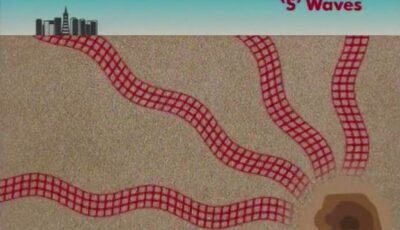
Seismic waves (1) | Short Circuit
Seismic waves (1) | Short Circuit
Spec references J249: P8.3i, P5.1e. Different types of seismic wave - primary (P) and secondary (S) waves.
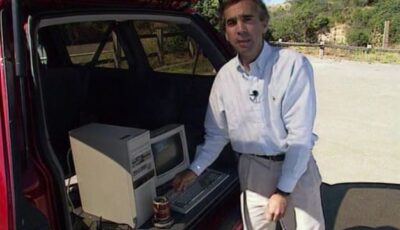
Seismometer | Short Circuit
Seismometer | Short Circuit
Spec references J249: P8.3i, P4.2e. How a seismometer works and use of dynamo effect.
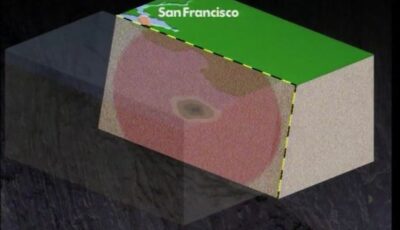
Earthquakes | Short Circuit
Earthquakes | Short Circuit
Spec references J249: P8.3i. Why earthquakes happen.

Transverse and longitudinal waves | Additional Science 2
Transverse and longitudinal waves | Additional Science 2
Spec references J249: P5.1e J250: P4.1e. The differences between transverse and longitudinal waves demonstrated with...
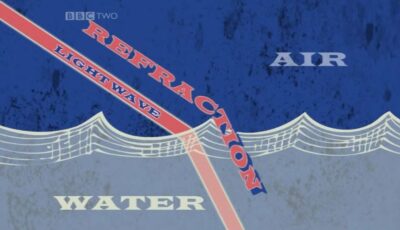
Properties of waves - refraction | Curriculum Bites
Properties of waves - refraction | Curriculum Bites
Spec references J249: P5.3a, P5.3d J250: P4.2j. Demonstration with description and animation of ray diagram for refraction.
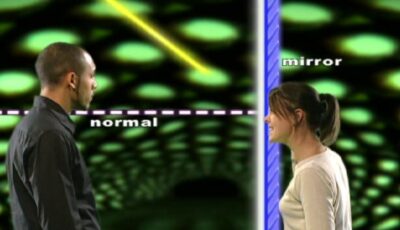
Properties of waves - reflection | Curriculum Bites
Properties of waves - reflection | Curriculum Bites
Spec references J249: P5.1g. Demonstration and description with animation of ray diagram for reflection.

Refraction | Additional Science 2
Refraction | Additional Science 2
Spec references J249: P5.1g. Simple description of refraction.
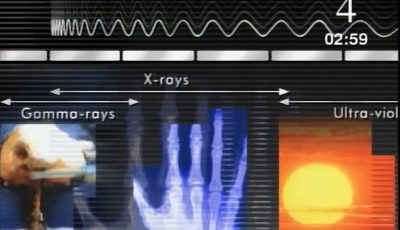
The electromagnetic spectrum | Short Circuit
The electromagnetic spectrum | Short Circuit
Spec references J249: P5.2a, P5.2c, P5.2d, P5.2f, P5.2g J250: P4.2a, P4.2c, P4.2d, P4.2f, P4.2g. All electromagnetic waves are t...
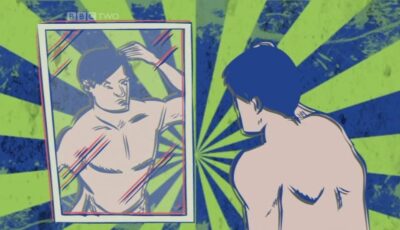
Reflection | Additional Science 2
Reflection | Additional Science 2
Spec references J249: P5.1g. Demonstration and description with animation of ray diagram for reflection.
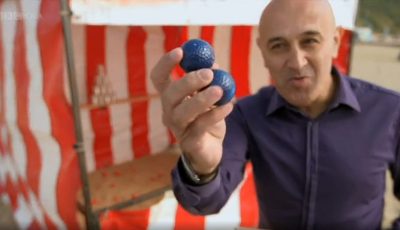
Einsteins explanation of photoelectricity | The Secrets of Quantum Physics
Einsteins explanation of photoelectricity | The Secrets of Quantum Physics
Einstein argued that science needed to forget of light as a waveform and think of it more as a str...
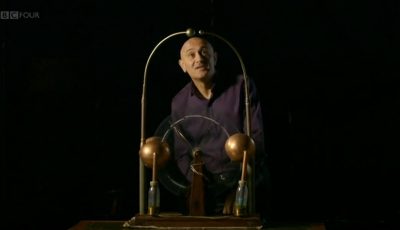
The photoelectric effect | The Secrets of Quantum Physics
The photoelectric effect | The Secrets of Quantum Physics
In the late 19th century, scientists discovered that exposing electrical voltages to bright light could transfer sp...

The ultraviolet catastrophe and black-body radiation | The Secrets of Quantum Physics
The ultraviolet catastrophe and black-body radiation | The Secrets of Quantum Physics
Max Planck was interested in why light changed colour as it got hotter, so built a blac...

Optically Speaking | Short Circuit
Optically Speaking | Short Circuit
Bringing chemistry, physics and biology to life using real-life examples, 3D graphics and practical experiments.


